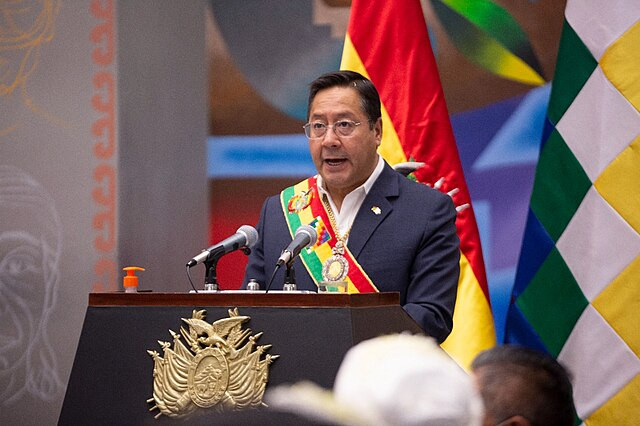The recent failed coup attempt in Bolivia against President Luis Arce has sparked a flurry of conspiracy theories, with numerous social media accounts alleging CIA involvement. This development comes amid Bolivia's ongoing political and economic turmoil, exacerbating tensions within the country.
The coup attempt unfolded on Wednesday when armored vehicles and troops descended on the Bolivian government headquarters in La Paz, attempting to force their way into the presidential palace. The rebellion was swiftly thwarted by Arce's loyalists and his security team, leading to the arrest of General Juan José Zúñiga, who appeared to be the coup's leader. The dramatic confrontation was broadcast live.
Social media platform X, formerly known as Twitter, was inundated with posts speculating that the CIA was behind the coup. Some users suggested that Bolivia's vast lithium reserves, its close ties with Russia, or its condemnation of Israel's actions in Gaza might have motivated the coup.
One user commented, "This is the second CIA-backed coup plot against the Bolivian state in under 5 years. Bolivia has 21 million tons of lithium reserves-the largest on the planet. Bolivia also cut off all relations with Israel in condemnation of the genocide in Gaza. Coincidence? I think not." Another user highlighted President Arce's recent visit to Russia, hinting at geopolitical motivations for the coup.
Despite these allegations, there is no concrete evidence linking the CIA to the failed coup. However, Bolivia's historical distrust of the U.S. and its intelligence agencies fuels these suspicions.
The CIA's involvement in Latin American coups during the Cold War era has left a lasting impact on the region's political landscape. In 2008, then-President Evo Morales expelled the U.S. ambassador, accusing him of conspiracy against Bolivia's democracy-a claim denied by the State Department. Morales, who governed Bolivia for nearly 14 years, was himself ousted in a coup in 2019, leading to the temporary presidency of right-wing politician Jeanine áñez, who is now imprisoned.
President Arce, who succeeded áñez in 2020, campaigned on a platform of democratic restoration and economic recovery. His tenure has been marred by severe economic challenges, with the International Monetary Fund (IMF) forecasting Bolivia's economic growth at just 2.3% for 2025, the lowest in 25 years, excluding the COVID-19 pandemic period. Bolivia's economic decline has been a stark contrast to the previous decade's growth, driven by high commodity prices.
The recent coup attempt underscores the political instability that has plagued Bolivia for decades. The country has experienced over 190 coup attempts since gaining independence in 1825. This latest incident, however, appears to lack significant support, with even Arce's political rivals condemning the uprising.
General Zúñiga, before his arrest, claimed that President Arce had orchestrated the coup to bolster his popularity. He alleged that Arce instructed him to deploy armored vehicles to create a political spectacle. Justice Minister Iván Lima dismissed these claims, asserting that Zúñiga was attempting to justify his actions. Prosecutors have announced they will seek the maximum sentence for Zúñiga for his role in the coup attempt.
The coup attempt also highlights the ongoing power struggle between President Arce and former President Evo Morales. Morales, who still enjoys significant support from coca farmers and union workers, has announced his intention to run in the 2025 presidential election, setting the stage for a fierce battle within the ruling Movement for Socialism (MAS) party. This internal conflict has further paralyzed the government's ability to address the country's economic woes.
In the wake of the coup attempt, regional leaders and international organizations have expressed their support for President Arce and condemned the actions of the rebellious military faction. Chilean President Gabriel Boric stated, "We strongly condemn the unacceptable action of force by a sector of that country's army.




